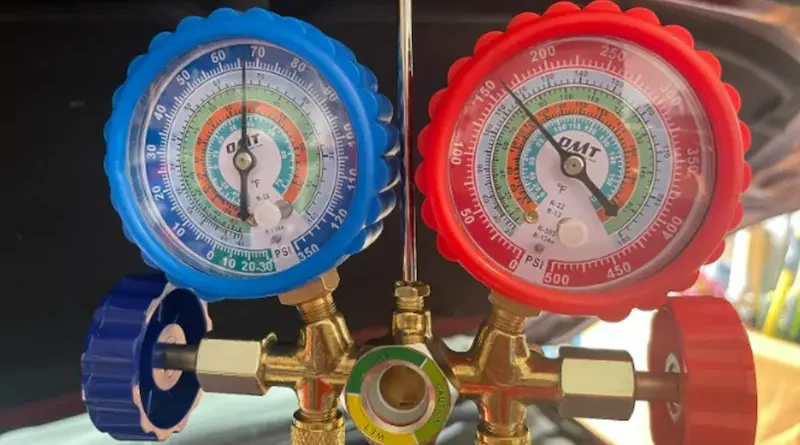Everything You Need to Know About Automotive Vacuum Pumps
Introduction
When you think about the essential parts of your car, things like the engine, brakes, or transmission probably come to mind first. But there’s another small, often-overlooked component that plays a critical role in keeping your vehicle safe and efficient: the vacuum pump. Without it, crucial systems like your brakes and emission controls wouldn’t function properly. In this guide, we’ll break down everything you need to know about automotive vacuum pumps—from what they do to how to maintain them.
What Is an Automotive Vacuum Pump?
An automotive vacuum pump is a device designed to create negative pressure (a vacuum) inside the engine or its systems. This vacuum powers various functions in the vehicle, most importantly the brake booster, which ensures smooth and effective braking. Typically, the pump is mounted on or near the engine, depending on the design of the car.
Why Are Vacuum Pumps Important in Vehicles?
The importance of vacuum pumps goes beyond simply “helping the engine.” They serve several critical roles:
- Braking Support: Modern vehicles rely on vacuum-assisted brakes. Without a functioning vacuum pump, your brake pedal would feel hard and require much more effort to stop the vehicle.
- Diesel Engines: Unlike gasoline engines, diesel engines don’t naturally produce enough vacuum. A vacuum pump is essential to power the brake booster and other systems.
- Turbocharged and Hybrid Vehicles: These engines often operate under conditions where vacuum levels are low, so vacuum pumps ensure that critical systems still get the pressure they need.
- Efficiency and Emissions: Many emission control systems rely on a vacuum supply to reduce harmful pollutants.
Types of Automotive Vacuum Pumps
There are two main types of vacuum pumps used in vehicles:
- Mechanical Vacuum Pumps
- Driven directly by the engine.
- Common in older vehicles and many diesel-powered cars.
- Reliable but add mechanical load to the engine.
- Electric Vacuum Pumps
- Operate independently of the engine.
- Increasingly common in hybrid and fuel-efficient vehicles.
- Offer consistent performance and reduce fuel waste.
Each type has its strengths, but newer vehicles are leaning more toward electric pumps for efficiency and reliability.
Common Applications of Vacuum Pumps in Vehicles
Automotive vacuum pumps support a variety of systems, including:
- Brake Boosters – Ensure safe, easy braking.
- Turbocharger Wastegate Actuators – Help control turbo pressure.
- Emission Control Systems – Manage exhaust gases for reduced pollution.
- HVAC Systems – Power air conditioning controls and airflow systems.
Signs of a Failing Vacuum Pump
Like any component, vacuum pumps can wear out over time. Here are some common symptoms to watch for:
- Hard or unresponsive brakes – A big red flag that your brake booster isn’t getting enough vacuum.
- Hissing noises – Air leaks from the pump or hoses.
- Poor fuel efficiency – A struggling vacuum system can make the engine work harder.
- Warning lights – Check engine or brake system lights may come on.
Maintenance and Replacement Tips
To keep your vacuum pump working properly:
- Inspect regularly – Especially during routine service checks.
- Check for leaks – Cracks in hoses or fittings can cause performance issues.
- Replace when needed – Pumps generally don’t last forever; if you notice symptoms, replacement is better than patching.
- DIY vs. Professional – Handy car owners can replace a vacuum pump themselves, but professional service ensures proper installation.
For those interested in DIY maintenance, it’s always helpful to browse reputable resources about your vehicle’s AC or vacuum systems. For example, the guide “How to Evacuate a Car AC System” offers detailed information on the process, which can help you better understand how these systems work.
Choosing the Right Vacuum Pump for Your Vehicle
When it’s time for a replacement, keep these factors in mind:
- Engine type – Diesel, gasoline, and hybrid engines may require different styles of pumps.
- OEM vs. Aftermarket – OEM (original equipment manufacturer) parts guarantee compatibility, while quality aftermarket options can be more cost-effective.
- Durability and Warranty – Look for pumps that are built to last and come with manufacturer support.
A high-quality vacuum pump not only restores performance but also ensures your vehicle remains safe on the road. For those who want a reliable, all-in-one solution, Orion Motor Tech’s vacuum pump tool kit is a great option. It’s designed to handle a wide range of automotive applications, making it an excellent choice for both DIY car owners and professional mechanics.
Conclusion
While it may be small in size, the vacuum pump plays a big role in your vehicle’s safety, efficiency, and reliability. From helping your brakes perform properly to supporting emissions control, this component is one you don’t want to overlook. If your car is showing signs of vacuum pump trouble, don’t ignore it—regular maintenance or timely replacement can make all the difference.
Whether you drive a diesel, a turbocharged car, or a modern hybrid, keeping your vacuum pump in good condition is key to smoother driving and peace of mind.
Visit the rest of the site for more interesting and useful articles.

